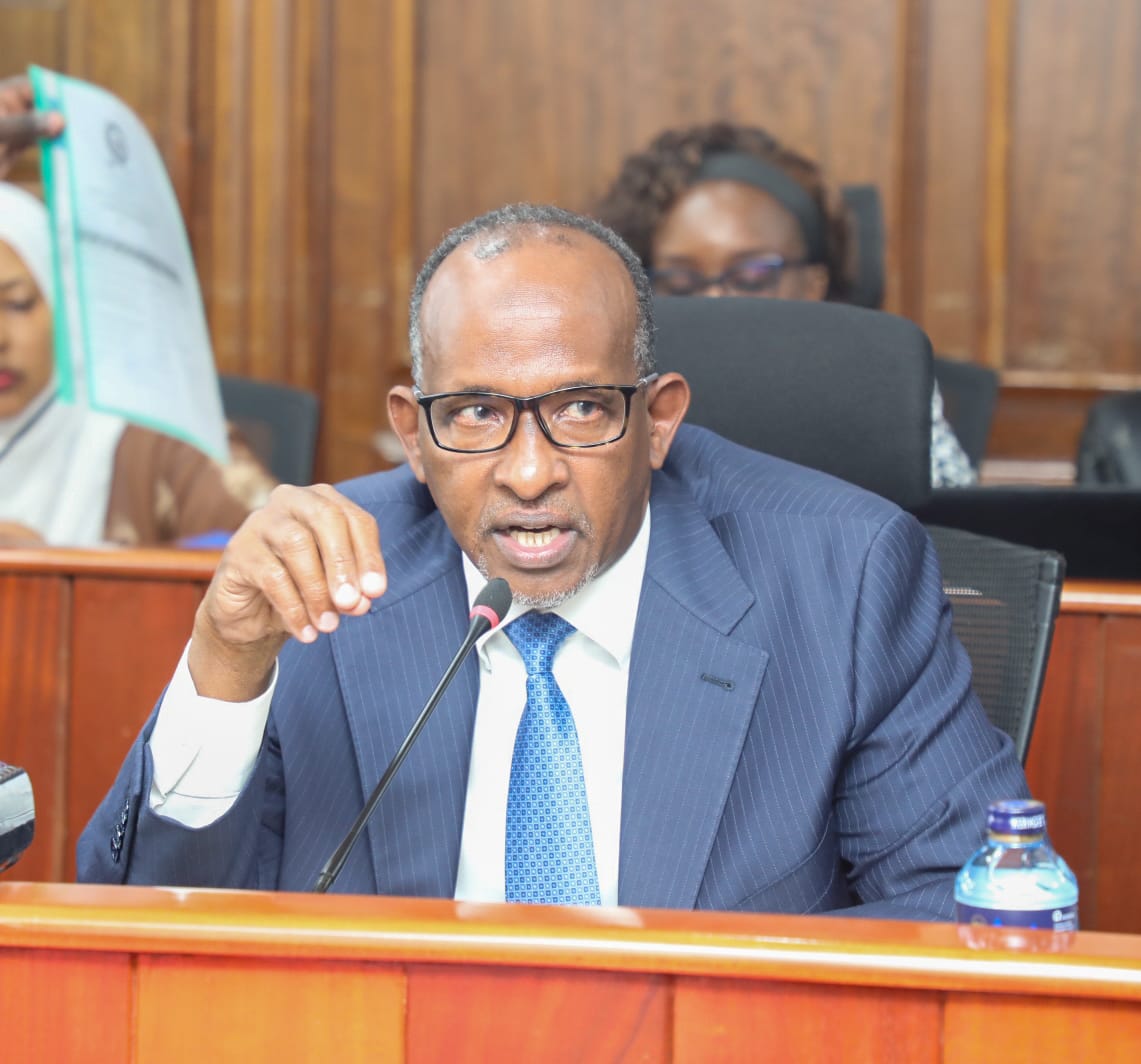CS Duale faces Senate over health law compliance gaps

Duale defended the Ministry’s actions, saying legal advice from the Attorney General had cleared the amendments, and the process relied on feedback already reviewed by the National Assembly.
Health Cabinet Secretary Aden Duale came under scrutiny from Senators on Thursday over the legality and transparency of two newly published health insurance regulations, as Parliament questioned the Ministry’s failure to conduct fresh public participation and to submit a mandatory Regulatory Impact Statement.
Appearing before the Senate Committee on Delegated Legislation, Duale defended the Ministry’s actions, saying legal advice from the Attorney General had cleared the amendments, and the process relied on feedback already reviewed by the National Assembly.
The session, held at Parliament Buildings, formed part of the Senate’s ongoing oversight of the rollout of Kenya’s new universal healthcare system.
The Committee, chaired by Senator Mwenda Gataya of Tharaka Nithi, focused on the Social Health Insurance (Amendment) Regulations, 2025, and the Social Health Insurance (Tariffs for Healthcare Services) Regulations, 2025.
Senators raised concern over the absence of documents proving that members of the public had been involved in amending the regulations.
"Following the Attorney General’s advice, there was no need for additional public engagement since the amendments were based on recommendations already reviewed and adopted by the National Assembly’s Delegated Legislation Committee," said Duale.
He added that the original or Principal Regulations had gone through “comprehensive and extensive public participation,” which, in the Ministry’s view, met the legal threshold set out in the Statutory Instruments Act.
The Committee also raised alarm over the absence of a Regulatory Impact Statement attached to the tariff regulations, which they noted is a legal requirement under Section 6 of the Statutory Instruments Act.
Lawmakers warned that without such an assessment, the proposed tariffs might cause financial pressure on communities.
In his response, Duale maintained that the tariff proposals had undergone a separate and wide-ranging public consultation process.
He said the Ministry had invited public views through a newspaper notice published on 10th June 2024, with a deadline set for June 17, 2024.
In addition, he said the proposals were posted on the Ministry of Health and Social Health Authority websites to ensure public access.
The process, according to the CS, concluded with a National Validation Exercise on August 30, 2024, during which feedback from various stakeholders was reviewed and incorporated into the final tariff structure.
Duale emphasised that the Ministry had also worked closely with parliamentary health committees and the Committees on Delegated Legislation from both the National Assembly and Senate.
"The Ministry did not prepare an entirely new Regulatory Impact Statement," said Duale. "Instead, we revised the existing one from 2024 to include the latest stakeholder feedback specifically relating to the tariffs."
He explained that the revised tariff structure corresponds with the benefits outlined in the Second, Third and Fourth Schedules of the Social Health Insurance Regulations, 2024.
Duale used the session to clarify the functions of the three health funds under the new system. He said the Primary Healthcare Fund will focus on preventive and community-based services.
The Social Health Insurance Fund will cover outpatient and inpatient care, dental, maternity, mental health, oncology, surgical procedures and more.
The Emergency, Chronic and Critical Illness Fund will support critical care, palliative services, rehabilitation, mental wellness programmes, and assistive medical devices.
Among the Senators present were Danson Mungatana (Tana River), Mohamed Faki (Mombasa), Joyce Korir, Betty Montet, Julius Murgor (West Pokot), Issa Juma Boy (Kwale), and Daniel Maanzo (Makueni).
While they commended the Ministry for responding to their concerns, they urged the Cabinet Secretary to strictly follow legal procedures in all stages of regulation-making.
The Committee is expected to analyse the Ministry’s submissions and prepare a report that could shape the next steps in the implementation of Kenya’s new healthcare system.
